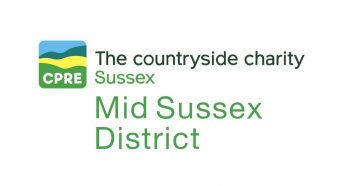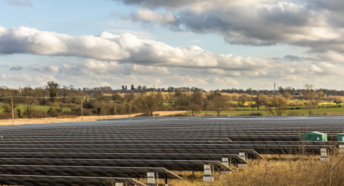Join us for an evening of fun, creativity and hope in the face of the climate crisis... but be quick!

There are still tickets available for CPRE’s Hope for the Countryside event on Tuesday (September 7).
You can still join us for an evening full of fun, creativity and hope in the face of the climate crisis, either in person at Glaziers Hall, London Bridge SE1 9DD, or remotely via an interactive livestream.
During the evening, we will hear from:
• Emma Bridgewater CBE, pottery designer and president of CPRE, explaining why we should have hope for our beautiful countryside
• Emma Marrington, who leads CPRE’s work on landscape enhancement, explaining why hedgerows are an important part of the solution to combat the climate emergency and nature’s decline
• Sarah Corbett, founder of the Craftivist Collective, who will talk about how protesting using crafts can have a positive and empowering impact on us as individuals and on our campaigning. During the craftivism workshop you will create a craft supplied by us, whether attending online or in person
• Crispin Truman OBE, CPRE’s chief executive, will explore other ways the countryside can tackle the climate emergency, providing many of the solutions to addressing climate breakdown
• Safia Minney, social entrepreneur, founder of People Tree and newly-appointed trustee of CPRE, will draw on her extensive experience to talk about how to build strong relationships to make change happen
How to book
You can order your in-person or virtual ticket at www.cpre.org.uk/hope. Alternatively, call the supporter care team on 020 7981 2870. The deadline for online ticket purchases is Monday (September 6) to allow time to post the crafting kits.
Saturday, September 4, 2021
- A number of important documents have yet to emerge. For example, a rigorous transport plan and a finalised air-quality assessment. The latter is critical given that allocations at Teynham will feed extra traffic into AQMAs.
- There seems to be no coherent plan for infrastructure delivery – a key component of the plan given the allocations being proposed near the already crowded Junction 7.
- There seems to have been little or no cooperation with neighbouring boroughs or even parish councils within Swale itself.
The removal of a second consultation might have been understandable if this final version of the plan were similar to that being talked about at the beginning of the consultation process. It is, however, radically different in the following ways:
- There has been a major shift in the balance of housing allocations, away from the west of the borough over to the east, especially around the historic town of Faversham. This is a move that raises many concerns.
- A new large allocation, with accompanying A2 bypass, has appeared around Teynham and Lynsted, to which we are objecting.
- Housing allocations in the AONB around Neames Forstal that were judged “unsuitable” by the council’s own officers have now appeared as part of the housing numbers.
- Most of the housing allocations being proposed are on greenfield sites, many of them on Grade 1 agricultural land – a point to which we are strongly objecting.
Concerns about the rush to submit the plan
The haste with which the plan is being prepared is especially worrying given the concentration of housing in Faversham. If the town is to take a large amount of new housing, it is imperative that the policies concerning the area are carefully worked out to preserve, as far as possible, the unique nature of the town. The rush to submit the plan is likely to prove detrimental.
As Swale does not have a five-year land housing supply, it is open to speculative development proposals, many of which would run counter to the ideas contained in the current plan. Some are already appearing. This is a common situation, and one that, doubtless, is a reason behind Swale’s haste.
Our overriding fear, however, is that this emphasis on haste is ultimately going to prove counterproductive. This is because it is our view that the plan, in its current form, is unlikely to pass independent examination. We are urging Swale to listen to and act upon the comments being made about the plan and to return the plan to the council with appropriate modifications before submitting it to the Secretary of State.
Essentially, this means treating the current consultation not as the final one but as the ‘lost’ second consultation.
The consultation ends on Friday 30 April and we strongly urge residents to make their opinions known if they have not already done so.
Further information








